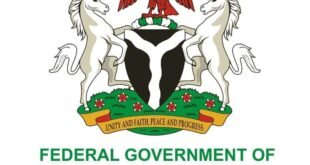In an effort to stimulate business activity and reduce compliance barriers, Nigeria has approved a simplified withholding tax regime.
This announcement comes from Taiwo Oyedele, Chairman of the Presidential Committee on Fiscal Policy and Tax Reform, via his official account X, on Tuesday.
Background:
The withholding tax, introduced in 1977, serves as an advance payment on income taxes for certain transactions. Its purpose is twofold: to generate consistent tax revenue for the government and to discourage tax evasion.
Challenges and Reforms:
However, Oyedele acknowledged that the expansion of the regime over time led to “ambiguity and complexity.” This resulted in an “undue burden” on businesses, particularly small and medium-sized enterprises (SMEs).
Also Read: EU partners with Meta, says ‘Pay or Deal’ model violates Digital Markets Act
Difficulties included:
• Unclear guidelines regarding who must comply, which transactions are covered, applicable rates, and when money must be sent.
• Treating deductions as separate taxes, increasing the tax burden and business costs.
• Challenges in obtaining refunds of excess tax withholdings.
• Lack of exemption thresholds, making compliance costly for businesses and tax authorities.
• Inadequate response to emerging business models and contemporary tax issues.
• Overall structure that encourages tax inequity.
Key Changes:
To address these issues, the newly approved regime introduces several key changes:
• Exemptions for Small Businesses: SMEs will be exempted from tax withholding compliance, potentially easing their financial burden.
• Lower Tax Rates for Low-Margin Businesses: Businesses with lower profit margins will benefit from lower withholding tax rates.
• Exemptions for Producers and Manufacturers: Farmers and other manufacturers will be exempted from tax cuts.
• Focus on Tax Avoidance and Evasion: Measures to curb tax avoidance and minimize tax evasion are included in the reforms.
• Improving Access to Credit: This reform aims to facilitate easier access to credit for businesses through the use of tax cuts.
• Alignment with Global Practices: The regime will be updated to reflect modern business practices and international tax standards.
• Clarity and Transparency: Clear definitions of key terms and standard timing for tax deductions are intended to increase transparency.
Publication and Implementation:
The official gazette is expected to publish the approved regulations in the coming days, outlining specific details of the reformed withholding regime.
Impact and Analysis:
These reforms represent a significant shift in Nigerian tax policy, potentially creating a more business-friendly environment. Reducing compliance burdens and exemptions for certain sectors could stimulate entrepreneurial activity and economic growth.
However, the success of these reforms will depend on clear communication and efficient implementation by the relevant authorities. Businesses and tax professionals will be watching closely to understand the full scope of these changes and their impact on the overall tax landscape in Nigeria.



Nigerian government simplifies tax withholding regime, aims to ease burden on businesses first appeared on Latest Nigeria News | Headlines from Ripples Nigeria.
 JamzNG Latest News, Gist, Entertainment in Nigeria
JamzNG Latest News, Gist, Entertainment in Nigeria









